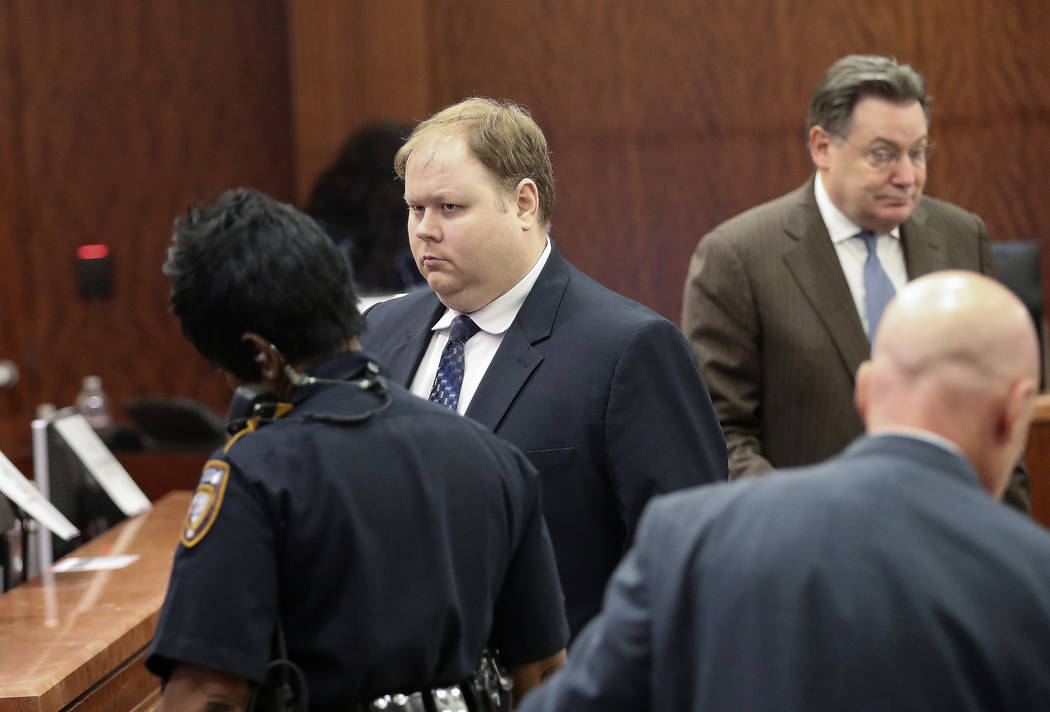Texas jury convicts man of killing 6 of ex-wife’s family

HOUSTON — A man accused of fatally shooting six members of his ex-wife’s family, including four children, in an act of vengeance is guilty of capital murder, a jury in Houston decided Thursday.
Jurors deliberated for eight hours over two days before rejecting Ronald Lee Haskell’s insanity defense. His attorneys had argued that Haskell believed voices in his head were telling him to kill the Stay family at their suburban Houston home in 2014.
Starting Monday, jurors hear evidence in the trial’s punishment phase before deciding whether to sentence Haskell, 39, to life in prison or death.
Prosecutors alleged Haskell was motivated by vengeance and had plotted to hurt anybody who helped his ex-wife, Melannie Lyon, after she left him. Lyon testified that Haskell physically abused her and their children, so she moved them all from Utah to Texas to be with her family after the divorce.
Authorities say Haskell traveled from California and stalked Lyon’s family for two days before killing six of them.
Cassidy Stay, who was 15 at the time of the shooting, was shot in the head but survived by playing dead.
Stay clasped her hands as if in prayer and bowed her head before the verdict was read. Afterward, she wiped away tears. Stay later smiled and took deep breaths as she hugged prosecutors in the Houston courtroom
Haskell showed no reaction to the verdict. He looked down to the floor, as he did throughout the trial.
Stay, now 20, testified at trial that she prayed and begged her uncle “please don’t hurt us,” but that Haskell forced the whole family to lie face down on the living room floor before shooting them one by one.
Among those killed were 39-year-old Stephen Stay and his 34-year-old wife Katie, along with their children 4-year-old Zach; 7-year-old Rebecca; 9-year-old Emily; and 13-year-old Bryan. Katie Stay was the sister of Haskell’s ex-wife. Haskell was convicted in the deaths of Stephen and Katie Stay.
After the shooting at the Stays’ home, Haskell tried going to the houses of his ex-wife’s parents and brother, but officers took him into custody after a long standoff.
In Texas, an insanity defense is rarely used and seldom successful.
A forensic psychiatrist testifying for the defense said Haskell wasn’t responsible for his actions because of severe mental illness that prevented him from knowing right from wrong. The psychiatrist testified Haskell was suffering from a form of bipolar disorder, a brain condition that causes unusual shifts in mood, and from schizoaffective disorder, a condition characterized by hallucinations or delusions.
Prosecution experts testified that Haskell did not have a severe mental illness and had faked his symptoms. He knew his actions were wrong and had carefully planned the killings, they said.